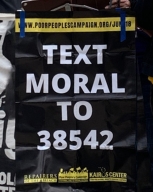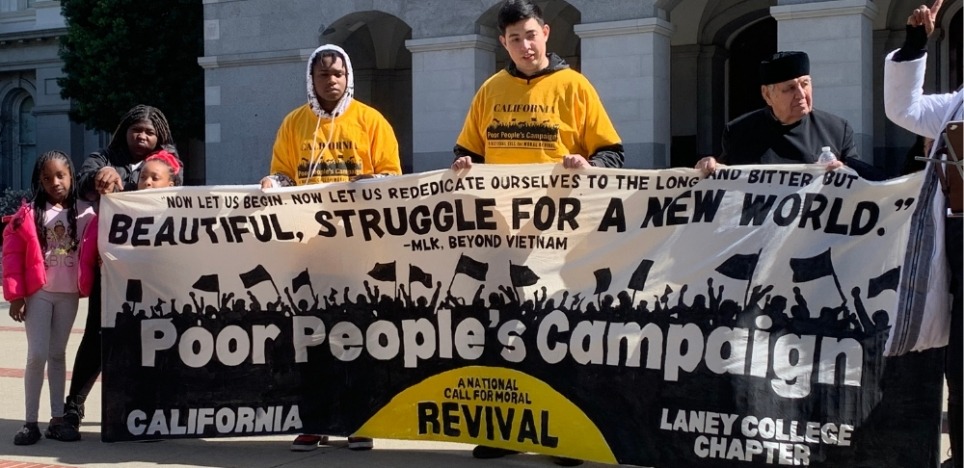On Saturday, March 2, the Poor People’s Campaign marched on state capitols in 32 states. The goal of the marches was to make visible the concerns of the 140 million poor and low-wage voters in the United States. Because politicians typically overlook the needs of the poor in platforms and policies, voter turnout is low, yielding a government that does not represent a huge number of its citizens.
The Poor People’s Campaign has been trying to change that, beginning with Martin Luther King, Jr, in 1968, and continuing with Reverend William Barber III in 2018.
We have highlighted Barber’s work in S&P’s Living Spiritual Teachers Project, and we consider him the foremost civil rights leader of this era. He is a strong voice for fusion politics at a time when polarization is the norm. Under his leadership, the PPC brings together people of all religions, parties, races, sexualities, genders, and socioeconomic classes to support moral policies that allow everyone to thrive.
An Introduction to Barber’s Activism. If you’re new to Barber’s activism, watch this short video as an introduction. It offers an overview of the Poor People’s Campaign, surprising statistics about poverty in the United States, and Barber’s explanation for why we need a broad movement addressing “five interlocking injustices.”
Watch directly: https://www.youtube.com/watch?v=TJ4Knip-uAo
Mobilizing Voters in 2024. Allow yourself to be inspired and activated by this rousing video announcing the PPC’s mobilization of voters for the 2024 election.
Watch directly: https://vimeo.com/906790864
 Get Involved. To engage with the work of the PPC, simply text ‘MORAL’ to 38542 and visit their site for more information.
Get Involved. To engage with the work of the PPC, simply text ‘MORAL’ to 38542 and visit their site for more information.
Celebrate fusion politics. The PPC uses fusion politics, not party politics, to bring people together instead of polarizing them. When Barber describes himself as “a theologically conservative, liberal, evangelical biblicist,” he is embodying this new narrative for American politics, one not dependent on division or fear of one another’s identities.
To celebrate the kind of power that comes when we transcend divides and party lines, write a list of four terms that describe you, and include one that is true but would not seem to “fit.” Now try to write a similar list about a neighbor, an enemy, a family member, or a co-worker — or better yet, invite that person to share their list with you.
